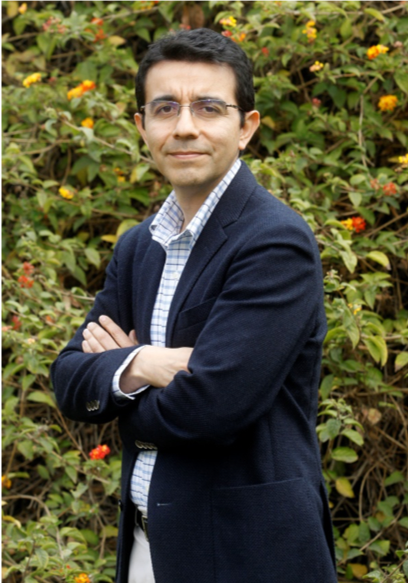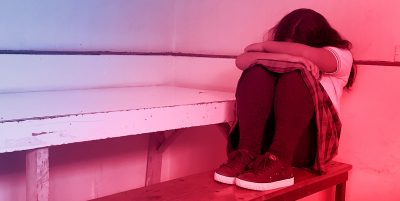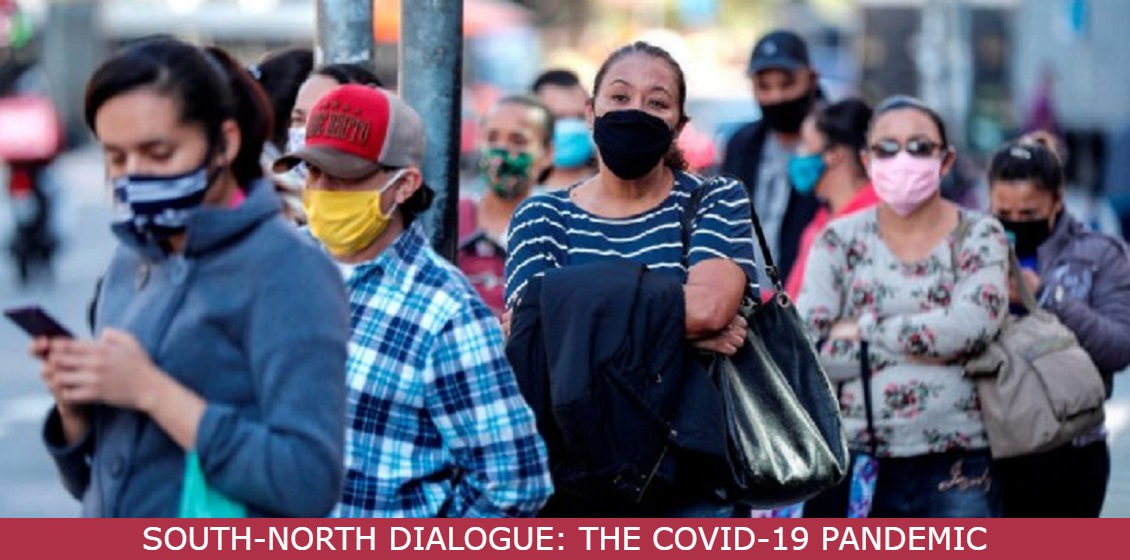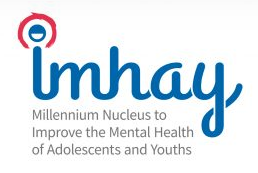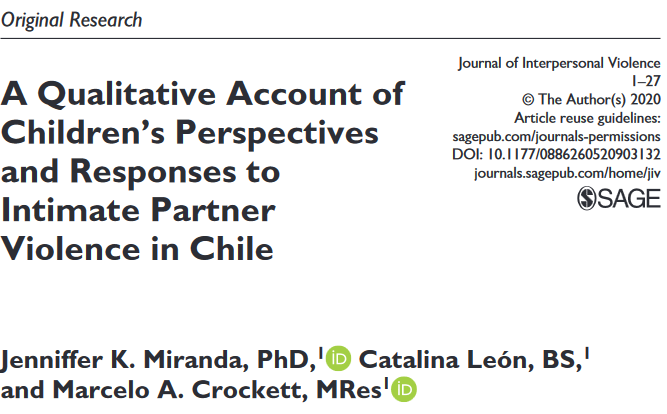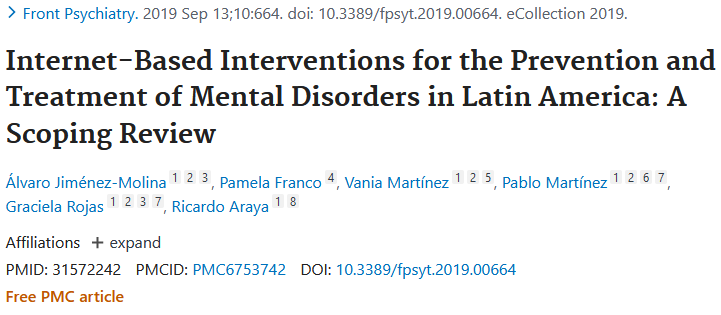A scientific study in Chile established that young people -18 to 29 years old – feel more fatigue, worry and boredom during the pandemic than older age groups. The causes are different. The closure of schools, bars, concerts, theaters, and meetings has impacted the social life of the youngest. Also studying at home, experts say, can be stressful and some young people or kids did not have any internet or computer access to educate themselves due the pandemic. The researchers also emphasize that peers’ relationships that do not share daily life are impeded by confinement, and we should care about their mental care because they are the future.
Childhood and youth are full of warm images: Being at the school door in the morning, giving your mother a kiss and running happily to meet your friends. The intimacy and proximity of teenage friendships that are forged in recreation, sharing a bench in the classroom with your best friend or enjoying playing the guitar with your college classmates or just being happy with them sharing a beer.
All these ways of natural bonding inherent to the development of children and youth were stopped for at least a year and a half due to the pandemic caused by COVID-19, which has resulted in the suspension of classes and face-to-face meetings.
One day, out of the blue children and young people around the world were deprived of knowing and experiencing the world, being forced to connect and build their identity online.
In the case of children and young people in Chile – like all those who come from developing countries – they have not only had to adapt to virtual classes, but also with all the adverse factors that the pandemic has deepened: economic problems , poor connectivity, new family dynamics and a long etcetera. This has undoubtedly affected their mental health like never before.
In Chile, few studies reveal the state of mental health of children, adolescents and young people. “Before the pandemic, it could be stated that about 20 to 25% of the child and teenager population had some psychiatric pathology. Which already at that time spoke of quite high levels compared to other countries”, states Jorge Gaete, psychiatrist, academic at the University of Los Andes and one of the principal researchers of the Millennium Nucleus to Improve the Mental Health of Adolescents and Young People (IMHAY).
In this context, a study carried out in 2020 to first-year students of the University of Chile conducted by the Millennium Nucleus to Improve the Mental Health of Adolescents and Young People (IMHAY), brought clarity about the state of mental health of Chilean youth. The research shows that three out of four surveyed acknowledge that their mood “was worse or much worse compared to the pre-pandemic context.”
The research, applied to 2.411 first-year students of the University of Chile, indicates that 77.7% of the students perceived that their mood was worse or much worse compared to their life before the pandemic , and “that women were those who reported more severe symptoms”.
In addition, 47.1% of the surveyed students reported a decrease in the income of their family group, 16.9% indicated that one of the members of their close family lost their job, 15.7% had a member of their family group who were infected with COVID-19, and 1.9% declared to have been diagnosed by COVID-19.
Internet and Social Media are not enough
Young students agree that virtuality and loss of socialization are among the “most important” factors when thinking about their mental health and the impact of the pandemic on their lives.
Manuel (24) is a professional photographer, he lives in Santiago Centro with his family and during the pandemic it has been difficult for him to find a full-time job with. During 2020, he got COVID-19 because his sister, who worked in a supermarket got the virus. In addition to the fact that his entire family was infected, Manuel suffered long from COVID. To which was added the effects on his mental health due to the confinement and confinement.
“I am a photographer and I am really used to being in movement so the quarantine was very hard. I lost several jobs. I have not been able to find a stable job. During the quarantine I wanted to do things, go out and clear my mind and I couldn’t. It affected me. Also I lost the opportunity to produce artistic activities at the local community in which I participate. It has been difficult for me to recover ”, Manuel says.
“Youth is a stage of life where socialization and building and identity is pivotal. Especially between school and university where there is a need for greater independence and identity. Socialization and getting along with your peers is key during this biological and psychological process of development”, explains Scarlett Mac-Ginty, a PhD candidate in the Population Health and Research Service of the Institute of Psychiatry, Psychology and Neuroscience at King’s College London and a young researcher at IMHAY.
“The increased use of technology is not enough to compensate for this lack of socialization. For example, the first-year university students in the survey have not known their classmates for a year and a half. I remember that a student told us that he had a dream with his classmates who were at a Zoom Meeting”.
“In addition to the loss of bonds between peers, social isolation caused children and young people to lose other support figures such as the headteacher, the teacher, the psychologist, the social workers,” explains Gaete.
This is the case of Nicolás (27) who three months after the pandemic began to live alone because his parents moved to another city. “The first eight months of the pandemic were all about finishing college. My daily routine included connecting to classes in the morning, preparing my day, and tidying up the apartment a bit. My parents moved 3 or 4 months after the pandemic started and I was left living alone. At that time I did not have the habit of going for a walk to clear my mind. I was living alone, studying and buying groceries and missing the people I loved,” he says.
According to the IMHAY study, 47% of students recognized difficulties in logging into courses and following classes online, and “82.5% reported having concentration problems with studies and daily activities.”
“My university life was very boring. During 2020, I completed the last year of my university degree and some classes were very bad, others adapted very well. But I also missed many field trips, which are unique learning occasions. As it was my last year of University, I feel like I did not finish college. I wish I could attend in person to be able to close the cycle”, says Camila (24), a graduate of Engineering in Renewable Natural Resources of the University of Chile.
“It was very difficult for me to adapt my rest and personal space, which was my room and my house, to a study space that was the University. I missed the times of relaxation as well. The University was a space to go to learn but also to talk with my friends and discuss what we were learning, she adds.
“Studies and academic performance were affected in students because they did not have adequate space, internet connection or a computer or simply because the class did not adapt very well, and these were the students who reported the greatest symptoms of depression and anxiety. Also the students reported having trouble focusing on daily tasks and studying”, Mac-Ginty explains.
Camila began 2020 with a diagnosed depression: “I developed a depression before the pandemic and the quarantine affected my sense of well being. I needed to relate to my peers,” she says. “I used the quarantine period to strengthen my relationship with my family but I needed to see my friends.”
The pandemic has also drastically reduced psychological and psychiatric care for young people as a result of sanitary restrictions. “First there was a gigantic reduction and then an adjustment to be able to provide these services online, which was achieved at the end of last year,” explains Gaete.
However, for mental health care the same is true of online classes. “In my experience as a doctor, adolescents are very easily distracted, they don’t pay much attention and they don’t have a suitable place to speak confidently as there are few private spaces. This meant that many people resisted this type of attention and preferred to wait for the normal attention to open,” says the academic from the Universidad de los Andes.
The waiting of children, young people and adolescents to have a “proper” mental health consultation, many times carries a huge risk. “I have the feeling, from my experience treating patients on the hospital shift, the reduction in care produced a very important delay in the opportunity to work with adolescent girls – which is what I do. I think the adult population also experienced the same.”
Another problem regarding the mental health of children, youth and adolescents in Chile has to do with access to consultations and treatment. “Children and young adults who have pathologies do not access psychological or psychiatric care in a timely and adequate manner. This is because we do not have a system that supports a connection between school or university with psychological services of the public health system ”, explains Gaete.
“In our country, only 18% of the people who have some psychiatric pathology receive some type of treatment,” he says. “This gap obviously increases as the family income or the levels of vulnerability in the psychosocial background are reduced. The fewer the resources, the gap is probably much higher,” she adds.
Mental health is care
The mental health of people during the pandemic deteriorated worldwide. “In developed countries, 80 % of mental health care begins in schools. Closing schools in the world largely explains the increase and prevalence of psychiatric problems in the general population due to lack of access. In teenagers and young adults, in particular, pre-pandemic, we are talking about levels of depression between 8 and 11 % depending on the place of the study. Recent studies show that those levels doubled to 22 %. In other words, there is a deepening effect of mental health issues due to the pandemic ”, explains Gaete.
“Until schools do not implement their mental health services again we will continue to have problems”, Gaete adds.
In this context, is it worth asking why mental health is important? According to Dr. Gaete, of all the psychiatric disorders that we see diagnosed as adults, 75% percent of them started before the age of 18 and 50% of them started before the age of 14. “In other words, the mental health pathology suffered by adults is already present in the child and teenagers population, before the age of 18 and even before the age of 14.”
“If we can generate, from the point of view of public policies, early prevention interventions in mental health, we will have a tremendous impact on the health of the general population.
In many countries, especially in Latin America, we need to invest in a public policy on mental health care at an early age and maintain it over time,” Gaete concludes.
Marta Apablaza Riquelme is a freelance science journalist based in Santiago, Chile
SUPPORT DDRN SCIENCE JOURNALISM. DONATE DKK 20 OR MORE![]() (APPLICABLE IN DENMARK ONLY)
(APPLICABLE IN DENMARK ONLY)
Live webinar: The impact of Covid-19 on the mentally ill
Time: Wednesday 24 Nov.2021, 9:30 am (GMT+1)
Presentations from Uganda, Chile and Denmark. Place: Zoom, Register by e-mail: info@ddrn.dk
